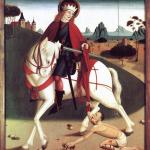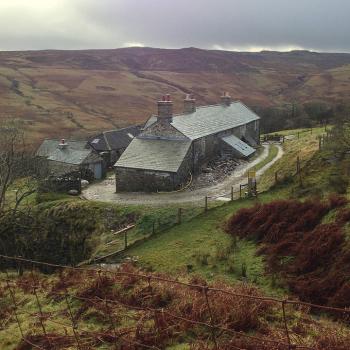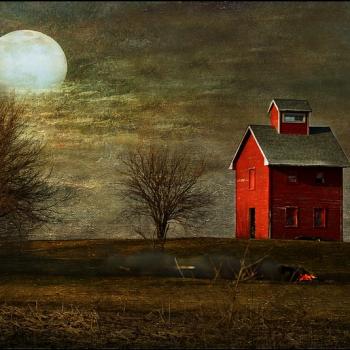Now, the argument goes, country music (and folk music and trucker music—all related forms) are far more commercial—more interested in beer and guns than in discussing social conditions; this represents a sort of conservative turn, a movement away from, say, Pete Seeger, Utah Phillips, and Red Simpson. Criticisms of contemporary country are, at this point, commonplace. What these often miss is that country was, once-upon-a time (like folk, which I’m not dealing with as directly here), something very different. When Merle Haggard doesn’t like where things have ended up, it may be worth listening.
Well, that took us a long way from Trump, the working class, and religion. How are these things related? It all comes back to the idea of folk music (and its derivatives) as a way of understanding “the popular spirit.” In the Middle Ages, folk songs could glorify the outlaw over and against a decaying feudal system. In 19th-century Germany, they could glorify the idea of the nation—a singular people rent apart by aristocratic machinations. In the days of Joe Hill, the Wobbly could spin a Broadway tune into an anthem of proletarian resistance. Johnny Cash could sing the following at San Quentin Prison:
San Quentin, what good do you think you do?
Do you think I’ll be different when you’re through?
You bend my heart and mind and you warp my soul,
And your stone walls turn my blood a little cold.San Quentin, may you rot and burn in hell.
May your walls fall and may I live to tell.
May all the world forget you ever stood.
And may all the world regret you did no good.San Quentin, I hate every inch of you.
(“San Quentin”)
Bob Dylan could croon about the tragic case of Rubin “Hurricane” Carter:
Now all the criminals in their coats and their ties
Are free to drink martinis and watch the sun rise,
While Rubin sits like Buddha in a ten-foot cell,
An innocent man in a living hell.
That’s the story of the Hurricane,
But it won’t be over till they clear his name
And give him back the time he’s done.
Put in a prison cell, but one time he could-a been
The champion of the world.
(“Hurricane”)
Of course, by the days of Bob Dylan, even by those of Pete Seeger, the middle and upper classes had begun to appreciate, even to cherish, folk (both men came from “non-folksy” backgrounds). As the Left became, in many ways, more intimately tied to middle- and upper-income groups, so did Left-leaning country music. Today, I believe, we see a similar movement on the Right.
Growing up where I did, most of those who listened to country (or trucker) music were fairly well off. There was, in an odd way, an interest in performing folksiness, of associating oneself as strongly as possible with the people, even if one is worth millions. They hunted, owned guns, and so on. Such people also tended to be conservative and consume the newer sort of country music that we’ve come to think of as either trashy or fundamentally Republican (or libertarian).
This is not, of course, to say that lower-income people don’t listen to country; they do, just as poorer people enjoyed Bob Dylan and Pete Seeger (in spite of their many wealthy fans). But I do think this trend tells us something about Trump’s base, about how we can explain his appeal to “the working class.”
The wealthy think of themselves as workers and express this through certain musical forms. This often fuses with a kind of “purple Christianity” (to borrow Schmitz’s idea) to produce fairly wealthy (often non-college educated, interestingly enough) people who see their lifestyles (including their musical tastes) as firmly rooted in a nostalgia for a patriotic American past, a simple past. It doesn’t matter if one is actually incredibly faithful, what ends up mattering is the performance of the values of the Faith. It doesn’t matter if one is wealthy, it matters that one smells of the earth (if only from a hunting trip).













